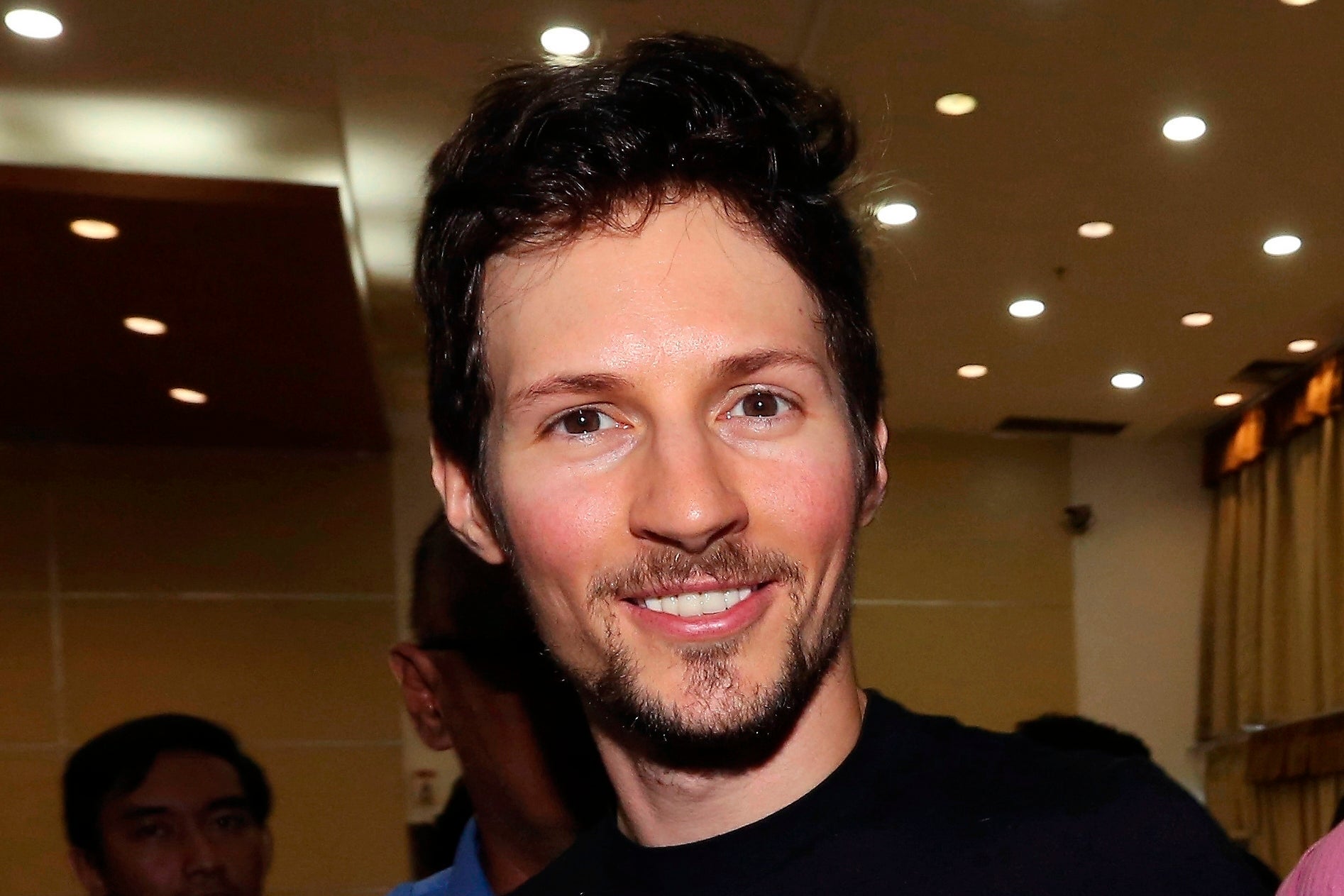The Independent's journalism is supported by our readers. When you purchase through links on our site, we may earn commission.
There’s a reason Telegram is known as ‘Facebook for Nazis’
I’ve dedicated my life to studying right-wing extremism, writes professor Matthew Feldman. Which is why I know there’s a far more sinister side to the shady social media platform than its owner, Pavel Durov...


Try as we might, no one individual can eliminate all the filth on social media. We can try to self-curate, but it’s impossible to keep ourselves completely immune. So it’s left to moderators to remove content that is either illegal or violates platform rules – usually both.
Too often on these platforms, next to kitty memes sit beheading videos; MrBeast videos compete for attention with neo-Nazi satanists encouraging murder. There exists a dark wealth of child sexual abuse material (CSAM); racism, ideological extremism and incitement to terrorism; bullying, harassment and doxing – including the “sextortion” of teens. With digital “community” comes rampant criminality.
To their credit, some big tech firms have many thousands of moderators responding to private, NGO or government requests to remove radical or dangerous content. It is a start, but far from enough. Other platforms and their owners simply stick two fingers up at the world. You might be thinking of Twitter/X and Elon Musk here, but the real high priest of free-speech absolutism has long been the 39-year-old Russian, Emirati, St Kitts and Nevis, French national, Pavel Durov.
Durov – who’s been placed under official investigation and banned from leaving France since his arrest on Sunday – rose to fame in a climate of powerful government censorship. In 2006, he founded Vkontakte, Russia’s version of Facebook, leaving the country eight years later after refusing to hand over user data to Putin’s bruisers.
At the time, he claimed “the country is incompatible with the Internet business at the moment”, adding that he planned to create a “new mobile social network”. With his brother Nikolai, Pavel found St Kitts and Nevis rather more welcoming: one $250,000 (£189,000) “donation” later earned them passports and free rein.
It was in this context of “censorship” (or better, accountability) vs unrestricted speech that Telegram was born. A decade later the platform has nearly a billion users worldwide – while the company has but 30 engineers. There are fewer moderators still; I would estimate about one for every 50 million users – and quite possibly fewer. After all, a digital Wild West was Telegram’s USP.
I’ve dedicated my life to studying right-wing extremism. Within my field of experts and advisers, it’s widely agreed that Telegram offers a “safe space” and “important platform” for racists, fascists and the like. Insiders will happily tell you that Telegram’s hands-off approach has been long regarded as the croaking canary in the coal mine. It wasn’t called “Facebook for Nazis” for nothing.
For instance: in 2020, a subset of Telegram users branded themselves the “Terrogram collective”. Hundreds of explicitly neo-Nazi Telegram channels crowdsurfed one terrorist manifesto after another, producing hundreds of pages of some of the worst calls for murder, genocide and violent racism one could conceive of (trust me on this). This incitement to – and glorification of – terrorism didn’t simply stay online, of course.
By late 2022, Terrogram had been accused of inspiring two separate mass shootings in Bratislava, Slovakia and Aracruz, Brazil. The Bratislava killer left a 65-page manifesto that opens with the following giveaway: “It’s the Jews. It’s the Jews. It’s the Jews.” After killing two LGBT+ people outside a bar, he was hailed as Terrorgram’s first “saint”.
Just weeks after the release of Terrogram’s first video “documentary” (a 24-minute gore-fest praising 105 fascist “saints”, identified as ideological murderers of the innocent), on 25 November 2022, four people were killed in Aracruz. A teenage boy, 16 – wearing a DIY uniform of a swastika armband and a skull mask – was arrested following the shooting of 14 people at two different schools. The youngest victim was a 12-year-old honour student named Selena Zagrillo.
Telegram’s response? It refused to hand over data on Brazilian neo-Nazi cells flourishing on Telegram, leading to a short-lived ban on the platform in Brazil last year. Then, in April this year, Britain became the first country in history to proscribe an online group, making belonging to the “Terrogram collective” or inviting support for the group a criminal offence, with a potential prison sentence of 14 years.
That legislation came almost six months to the day that France had seemingly seen enough of Telegram’s antics to detain Durov as he deplaned at Le Bourget this past weekend. After three days in a cell, Durov was released under judicial supervision yesterday after posting a €5m (£4.2m) deposit – a mere drop in his £10bn-plus bucket. Durov remains under French investigation for alleged “complicity” in a sweeping range of illegal activity that includes drug dealing, arms sales, child pornography and terrorism.
What happens next may have more influence over the digital world than anything since the 1996 American Communications Decency Act (Section 230 of which viewed internet companies as “good samaritan” hosts rather than publishers held to standards all other forms of media). Yes, it really is that big.
For my money: I believe Durov will be a free man by Christmas. As it happens, there seems to be no extradition treaty between France and St Kitts and Nevis (a commonwealth country in the Caribbean with a population of fewer than 50,000).
But that’s not really why this is a global issue. It’s not even really about the future of Telegram – their model will be easily remade in the future by another platform (though major changes are surely on the menu in the interim).
No, the crux of the Telegram affair lies in asking this fundamental question: what’s more powerful, nation states or private companies? After all, even countries as large as Australia have had to accommodate tech giants like Meta and Google. Where does that leave matters of power, control – and influence?
Durov’s arrest is being couched as a result of the EU’s recent legislation, via the Digital Services Act and regulations for terrorist content online. Yet neither law holds the provisions for criminal charges. France doesn’t actually have legislation to criminalise potentially “complicit” tech barons when their platforms cross the line to illegality.
Here, finally, is an opportunity for British leadership. Although the Online Safety Act passed last year, our recent riots – in which Telegram played no small part – have encouraged Keir Starmer’s new government to look “again at the powers of the law”. Surely, in the wake of Durov’s arrest, this must now include real and serious consideration of management liability for criminality on social media platforms.
By reopening the Online Safety Act – and cracking down on its recommendations – Britain could be the first to declare in law that it is nation states who should hold the power to regulate private companies, not the other way around. This should include transnational companies – and tech barons.
We could lead the way to ensuring criminal indictments are robust and serve justice. And speaking of justice, we happen to already have an extradition treaty with St Kitts and Nevis...






Join our commenting forum
Join thought-provoking conversations, follow other Independent readers and see their replies
Comments